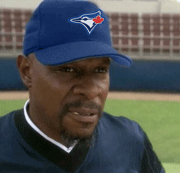- piratepilates
- Mar 28, 2004
-

So I will learn to live with it. Because I can live with it. I can live with it.



|
I'm trying to learn some Rust since it seems like a pretty rad idea, so far I've been trying to do some simple data structures to figure it all out.
Here's what I have for a binary search tree, it compiles and runs but the insertion doesn't fully work -- it seems to remove all the past changes each time you insert a new node:
http://is.gd/qhiZkq
code:fn main() {
let mut butt = BSTNode::new(5);
println!("{:?}", butt);
butt.insert(7);
println!("{:?}", butt);
butt.insert(2);
println!("{:?}", butt);
butt.insert(1);
butt.insert(3);
butt.insert(4);
butt.insert(6);
butt.insert(8);
println!("{:?}", butt);
}
#[derive(Debug)]
struct BSTNode {
value: i32,
left: Option<Box<BSTNode>>,
right: Option<Box<BSTNode>>
}
impl BSTNode {
fn new(value: i32) -> BSTNode {
BSTNode {
value: value,
left: None,
right: None
}
}
fn insert(&mut self, value: i32) {
match (self.value > value, self.left.take(), self.right.take()) {
(true, None, _) => self.left = Some(Box::new(BSTNode::new(value))),
(true, Some(ref mut left), _) => left.insert(value),
(false, _, None) => self.right = Some(Box::new(BSTNode::new(value))),
(false, _, Some(ref mut right)) => right.insert(value),
}
}
}
code:BSTNode { value: 5, left: None, right: None }
BSTNode { value: 5, left: None, right: Some(BSTNode { value: 7, left: None, right: None }) }
BSTNode { value: 5, left: Some(BSTNode { value: 2, left: None, right: None }), right: None }
BSTNode { value: 5, left: None, right: None }
Also how far off base is everything I did idiomatically-wise?
Also what exactly is 'self.left.take()' doing? It fails compiling without it with the message 'cannot move out of borrowed content' and I somehow googled my way in to using it.
edit: alright well scratch why it doesn't work, take() just replaces the content with a None, which is why my children are disappearing. How do I borrow the self.left and self.right in the match otherwise?
|
 #
¿
Jun 19, 2015 05:24
#
¿
Jun 19, 2015 05:24
|
|
- Adbot
-
ADBOT LOVES YOU
|

|
|
#
¿
Apr 28, 2024 17:45
|
|
- piratepilates
- Mar 28, 2004
-

So I will learn to live with it. Because I can live with it. I can live with it.



|
I'm quite new to Rust myself so I spent some time wrestling the borrow checker, but the following works: (http://is.gd/nVAEU0)
code:fn main() {
let mut butt = BSTNode::new(5);
println!("{:?}", butt);
butt.insert(7);
println!("{:?}", butt);
butt.insert(2);
println!("{:?}", butt);
butt.insert(1);
butt.insert(3);
butt.insert(4);
butt.insert(6);
butt.insert(8);
println!("{:?}", butt);
}
#[derive(Debug)]
struct BSTNode {
value: i32,
left: Option<Box<BSTNode>>,
right: Option<Box<BSTNode>>
}
impl BSTNode {
fn new(value: i32) -> BSTNode {
BSTNode {
value: value,
left: None,
right: None
}
}
fn insert(&mut self, value: i32) {
if self.value > value {
match self.left {
Some(ref mut left) => left.insert(value),
None => self.left = Some(Box::new(BSTNode::new(value))),
}
} else {
match self.right {
Some(ref mut right) => right.insert(value),
None => self.right = Some(Box::new(BSTNode::new(value))),
}
}
}
}
code:BSTNode { value: 5, left: None, right: None }
BSTNode { value: 5, left: None, right: Some(BSTNode { value: 7, left: None, right: None }) }
BSTNode { value: 5, left: Some(BSTNode { value: 2, left: None, right: None }), right: Some(BSTNode { value: 7, left: None, right: None }) }
BSTNode { value: 5, left: Some(BSTNode { value: 2, left: Some(BSTNode { value: 1, left: None, right: None }), right: Some(BSTNode { value: 3, left: None, right: Some(BSTNode { value: 4, left: None, right: None }) }) }), right: Some(BSTNode { value: 7, left: Some(BSTNode { value: 6, left: None, right: None }), right: Some(BSTNode { value: 8, left: None, right: None }) }) }
Sounds good to me, thanks.
|
 #
¿
Jun 19, 2015 23:58
#
¿
Jun 19, 2015 23:58
|
|
- piratepilates
- Mar 28, 2004
-

So I will learn to live with it. Because I can live with it. I can live with it.



|
Alright so I'm learning Rust again, and I'm trying to make a program that modifies images. I'm making a function that takes an image and returns a copy of that image that is grayscale, but I can't get it to compile yet.
Here's what I have so far:
(The image library is the piston image library (https://github.com/PistonDevelopers/image)
code:extern crate image;
use std::fs::File;
use std::path::Path;
fn grayscale_image_buffer(input_image: image::ImageBuffer) -> image::ImageBuffer {
let (image_x, image_y) = input_image.dimensions();
image::ImageBuffer::from_fn(image_x, image_y, |x, y| {
let pixel = input_image.get_pixel(x, y);
let r = pixel.data[0] as f32;
let g = pixel.data[1] as f32;
let b = pixel.data[2] as f32;
let average = (r + g + b) / 3.0;
image::Luma([average as u8])
})
}
If I change the function to be generic I get this:
code:extern crate image;
use std::fs::File;
use std::path::Path;
fn grayscale_image_buffer<P, C>(input_image: image::ImageBuffer<P, C>) -> image::ImageBuffer<image::Luma<u8>, C> {
let (image_x, image_y) = input_image.dimensions();
image::ImageBuffer::from_fn(image_x, image_y, |x, y| {
let pixel = input_image.get_pixel(x, y);
let r = pixel.data[0] as f32;
let g = pixel.data[1] as f32;
let b = pixel.data[2] as f32;
let average = (r + g + b) / 3.0;
image::Luma([average as u8])
})
}
[E0277]{" on the function definition line.
Making the function definition read like "fn grayscale_image_buffer<P: image::Pixel, C>" just gives me more errors about, well, everything. Can't find methods for the image passed in that I know exist on ImageBuffer, mismatched types, "error: the type of this value must be known in this context".
Basically all hell breaks loose and I'm not sure what the compiler is expecting of me at this point. What am I missing to make this function work?
|
 #
¿
Mar 5, 2016 21:33
#
¿
Mar 5, 2016 21:33
|
|








